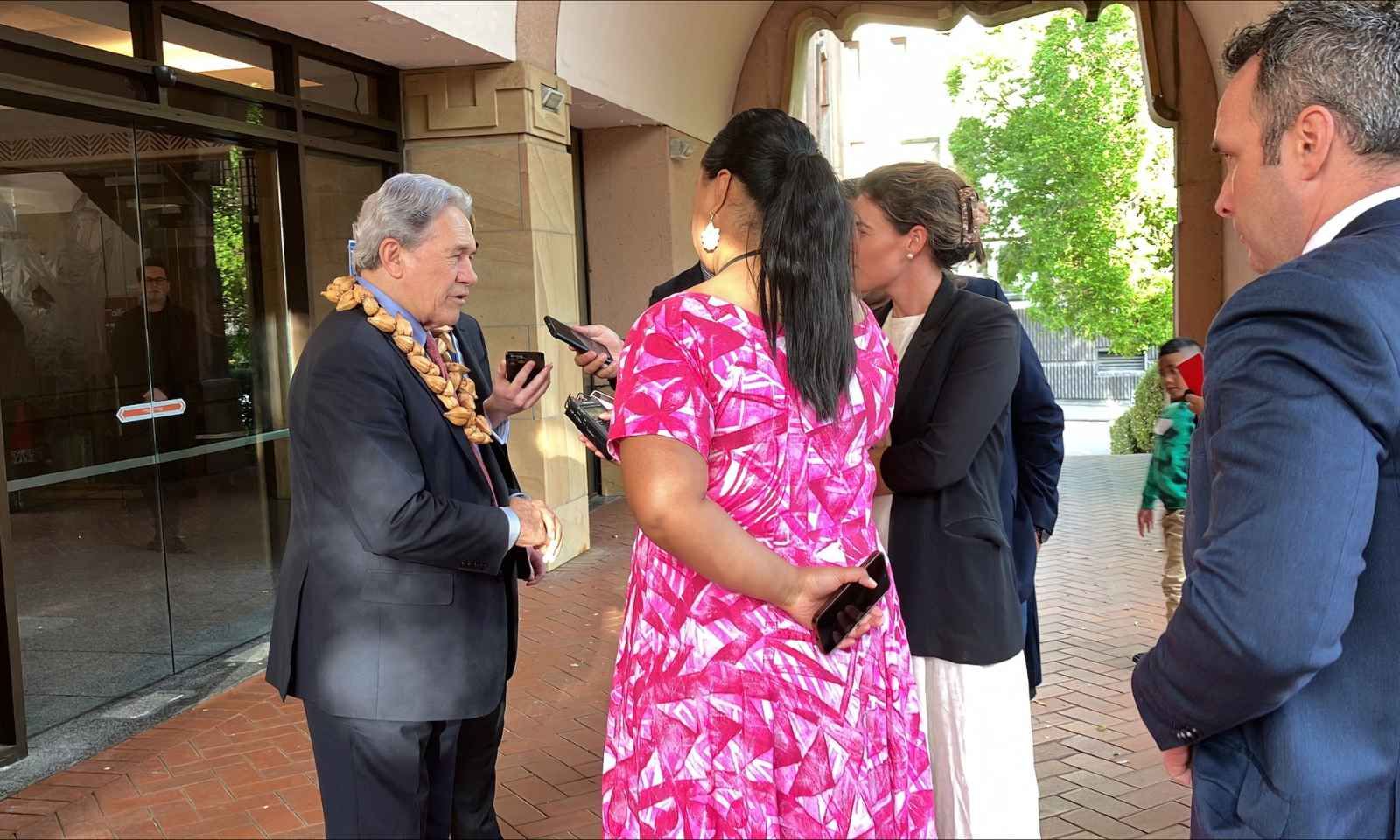

The bill passed with support from all parties which is rare.
Photo/Supplied
Politicians reflect on historic Sāmoa Citizenship Bill
While celebrated as a victory for ‘Pasifika justice’, questions remain about the bill's limitations.



Bad habits, burnout, and toxic people: What people are leaving behind before 2026


Pacific Cuisine: PMN’s top island dish of 2025



Bad habits, burnout, and toxic people: What people are leaving behind before 2026


Pacific Cuisine: PMN’s top island dish of 2025
Singing echoed through Parliament’s Debating Chamber after Members passed a bill to restore the right to New Zealand citizenship for thousands of Sāmoans.
Green MP Teanau Tuiono’s member’s bill, the Citizenship (Western Sāmoa Restoration) Amendment Bill, received unanimous support on Wednesday.
However, as many celebrate the achievement, questions remain about the bill’s limitations.
‘A victory after 42 years’
Politicians across the spectrum praised the bill as a significant victory.
Former National MP Anae Arthur Anae referred to it as a watershed moment.
"We have a victory after 42 years; that New Zealand has come on board and realised that something very sad happened. But there’s still work to be done."
Watch Anae Arthur Anae's full interview on Pacific Mornings here
Anae pointed out unresolved issues, particularly the exclusion of descendants and pensions for those affected.
During the Committee of the Whole House stage, Tuiono proposed amendments to include the descendants of those affected and waiving citizenship application fees for those eligible.
Unfortunately, both proposals were voted down by government parties.
However, one amendment was raised by New Zealand First, which proposed refunding successful citizenship applicants.
Despite only one amendment being accepted, hundreds gathered in Parliament on Wednesday for the bill’s final reading.
Tuiono emphasised the importance of celebrating progress while acknowledging the journey ahead.
"This is a step forward for Pasifika justice, but the legislation is focused on the original cohort, not their descendants.”
Watch Teanau Tuiono's full interview on Pacific Mornings here
Political cooperation and community advocacy
The bill was notable for its bipartisan support for a proposal from an opposition MP.
Deputy Prime Minister and NZ First, Vaovasamanaia Winston Peters, highlighted this unity.
"We’ve had a chance to fix it... This shows you that common sense and collegiality will work."
Peters confirmed to PMN News earlier this year that his party would support the bill throughout its process.

Peters speaks to media following the bill's final reading. Photo/Tim Manu
He acknowledged the historical significance, stating, "What happened in 1982 was backed by every party in Parliament, but they were wrong, and today [Wed] we’ve had a chance to fix it.”
Tuiono credited the success to the mobilisation of Sāmoan communities whose advocacy was crucial in influencing Parliament.
"Our communities mobilised, they were engaged and focused, and that’s the reason we got this bill over the line.”
Labour MP Barbara Edmonds underscored the importance of engaging key political players.
Watch Barbara Edmonds' full interview on Pacific Mornings here
"Jenny [Salesa] and Teanau targeted the Right Honourable Winston Peters because they knew, given his relationship with the Pacific, if they could get his ear, they would have the votes.
“Subsequently, last night at the celebration event, Members of Parliament were quite open about some of the negotiations that were happening behind the scenes. National was surprised that ACT supported it.
“So they obviously had to quickly turn around and go back to their caucus and say, ‘hey, everyone else is supporting this, why aren't we’?”
Critiques and calls for further action
Critics have pointed out the bill’s limitations.
Former Sāmoan Prime Minister Tuilaepa Sailele Malielegaoi expressed disappointment over the exclusion of descendants, calling it a missed opportunity.
Tuilaepa, who was affected by the 1982 law, will now be eligible for New Zealand citizenship.
"What is done is only a piece of bread. The disgrace is never removed unless the whole bread is recovered. Simply from the viewpoint of a human right forcefully removed.”
Watch Tuilaepa Sailele Malielegaoi's full interview on Pacific Mornings here
He urged New Zealand to follow the example of other nations that have restored citizenship to descendants of historical injustices.
Anae echoed similar concerns, particularly about the ageing cohort of those eligible under the bill.
"The youngest is 76, the oldest is 100. How long do you think they’ve got left? Not long," he said, advocating for pensions to recognise the decades of exclusion they have endured.
Historic but incomplete step
Tuilaepa recognised the significance of this milestone while noting the remaining gaps.
“I am thankful for all the parties that moved to approve the present bill.
“But it is never complete until the full realisation of the intention of the law that was passed in 1924 [Sāmoa Amendment Act] is fulfilled.
“And if we become the next government [in Sāmoa]...we are certainly going to pressure [the New Zealand Government] to fulfil the full intention of the law that was applicable in New Zealand.”
Watch the Gallery sing a Sāmoan pese after the bill passed its final reading in Parliament's Debating Chamber